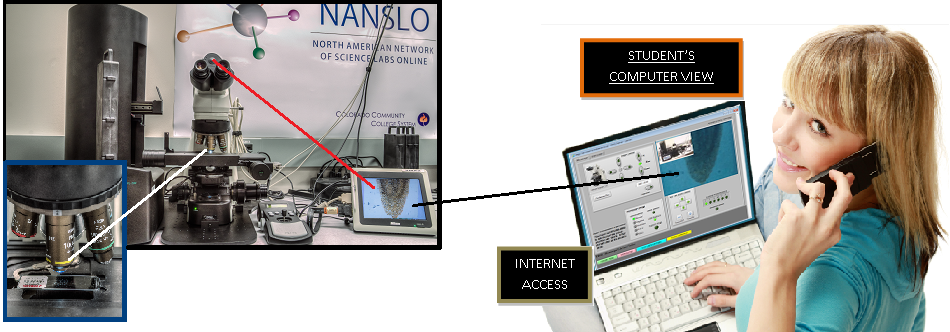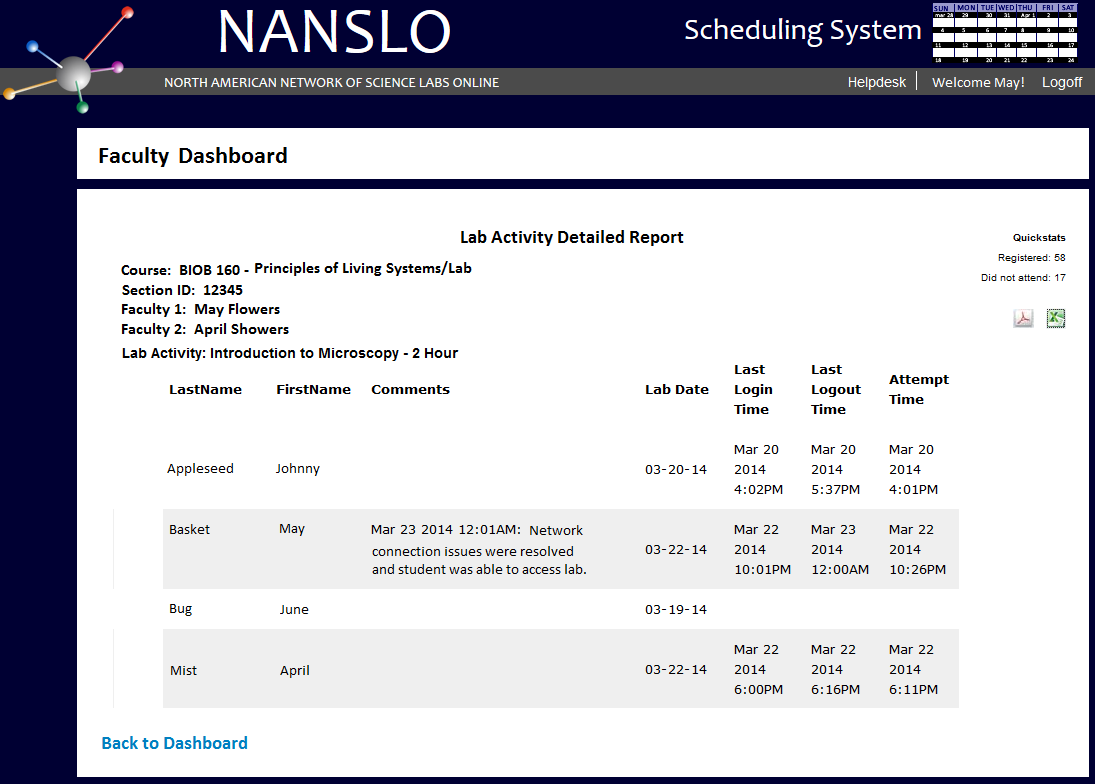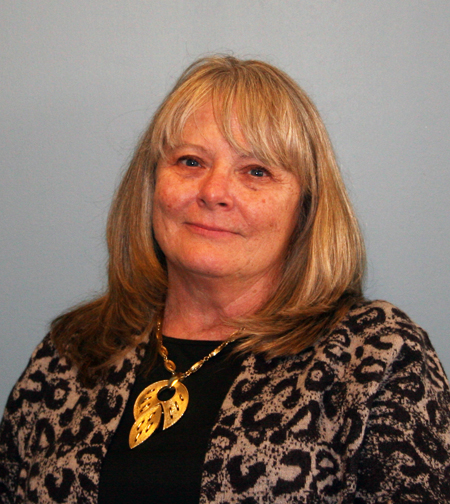NANSLO Web-based Labs: Real Equipment, Real Data, Real People!
Published by: WCET | 4/7/2015
Tags: Access, Distance Education, Lab Courses, STEM, WICHE
Published by: WCET | 4/7/2015
Tags: Access, Distance Education, Lab Courses, STEM, WICHE
Many pressures on higher education make the services of the North American Network of Science Labs Online (NANSLO) essential. These include growing enrollments in online courses while campus enrollments decline, the need to provide flexibility for nontraditional students, a growing demand for digital literacy, and a national emphasis on growing the number of STEM students, among others.
What is NANSLO?
The North American Network of Science Labs Online (NANSLO) is an alliance of cutting-edge science laboratories based at higher education institutions that provide students enrolled in science courses with opportunities to conduct their lab experiments on state-of-the-art science equipment using robotics, software, and video over the Internet. From any computer, students can log into one of the labs’ web interfaces and manipulate the controls on a microscope or other scientific equipment, participate in conversation with lab partners, ask for assistance from a knowledgeable lab technician in real time, and collect data and images for their science assignments. Through NANSLO, institutions can expand student access to STEM pathways, as they make it possible for students who cannot come to campus to complete lab activities online.
How Does it Work?
Through the NANSLO control panel, students:

What is NANSLO’s Discipline Focus?
NANSLO has developed 27 lab activities in biology, chemistry, physics, and allied health that are openly licensed with Creative Commons BY attribution. These labs are easily integrated into course curriculum and include background information, pre-lab questions, and lab activities that can be performed online. Or, these labs can easily be customized to meet individual course requirements. A list of all NANSLO lab activities with access to the Word version is available for easy download. Over time, NANSLO expects to expand its collection within these initial disciplines and add others.
Who Participates in NANSLO?
The NANSLO network’s hub is based at the Western Interstate Commission for Higher Education (WICHE) in Boulder, CO. WICHE serves as the public’s primary resource for information about NANSLO, coordinates communication among the network’s lab partners, provides the centralized scheduling system, and oversees selected contracting and financial transaction services for the partners. Currently, the network includes three laboratories: the Colorado Community College System (CCCS) laboratory is located at Red Rocks Community College in Arvada in Colorado; the Great Falls College Montana State University (GFCMSU) is located in Great Falls, Montana; and North Island College (NIC) is located in Courtenay, British Columbia.
The CCCS laboratory began serving CCConline students in 2012 and continues to do so along with serving students from three Consortium for Healthcare Education Online (CHEO) community colleges in Colorado through a U.S. Department of Labor Trade Adjustment Assistance Community College and Career Training (TAACCCT) grant that established that initiative and provided funding for expanding NANSLO’s work. The NIC laboratory is primarily NANSLO’s development site but delivers lab activities to one CHEO community college in Alaska. NANSLO’s GFCMSU laboratory, established with funds from the TAACCCT grant, opened in late fall 2014 and serves four CHEO community colleges in Montana, South Dakota, and Wyoming.
How Do Students Access an Assigned Lab?
First, an institution or its faculty uses the centralized scheduling system to reserve a block of time for students to perform assigned NANSLO lab activities. When a reservation is made, a unique URL and PIN is generated. Faculty give their students this information, and students use it to access the scheduling system and select a day and time within the reserved block to complete the lab activity. Students also use that link or the student dashboard customized with information unique to them to access their NANSLO lab activities.
Once connected to the NANSLO lab, students have access to real scientific lab equipment that lets them:

Faculty can find out how their students are performing by logging into a dashboard customized for their use and selecting the lab activity of interest. The report generated assists them in determining student participation in the assigned lab activity.
Conclusion
Over the past year, students have been surveyed about their experience with NANSLO. Here are some comments:
“It was amazing to be able to sit in comfort of my own home and be able to work with this equipment. I believe this is the way of the future just because it is so fitting for people to be able to do this. Everyone in this world has busy lives and this makes it that much easier on people.” Kodiak College University of Alaska Anchorage Student, AK
“What a great resource, it was way easier to use and much cheaper than buying the microscope
for my class” Flathead Valley Community College Student, MT
“This was great and I can see enormous potential for online students. Thank you for the opportunity! Community College of Aurora, CO
“I think this was a great experience. I think it comes pretty close to the real thing, which is
great. :)” Arapahoe Community College, CO
In sum, NANSLO can provide real value to institutions by:
NANSLO’s future plans call for implementing a fee-for-service model so that other institutions can purchase NANSLO services for their students. It is also looking at cloud computing as a possible approach to expand capacity exponentially while further enhancing efficiencies.
If you would like more information about NANSLO go to www.wiche.edu/nanslo or contact Sue Schmidt at sschmidt@wiche.edu or 303-541-0220.
Sue Schmidt
NANSLO/CHEO Project Coordinator
WICHE
sschmidt@wiche.edu
Pat Shea
Director, Academic Leadership Initiatives
WICHE
pshea@wiche.edu
This product was funded by a grant awarded by the U.S. Department of Labor’s Employment and Training Administration. The product was created by the grantee and does not necessarily reflect the official position of the U.S. Department of Labor. The Department of Labor makes no guarantees, warranties, or assurances of any kind, express or implied, with respect to such information, including any information on linked sites and including, but not limited to, accuracy of the information or its completeness, timeliness, usefulness, adequacy, continued availability, or ownership.